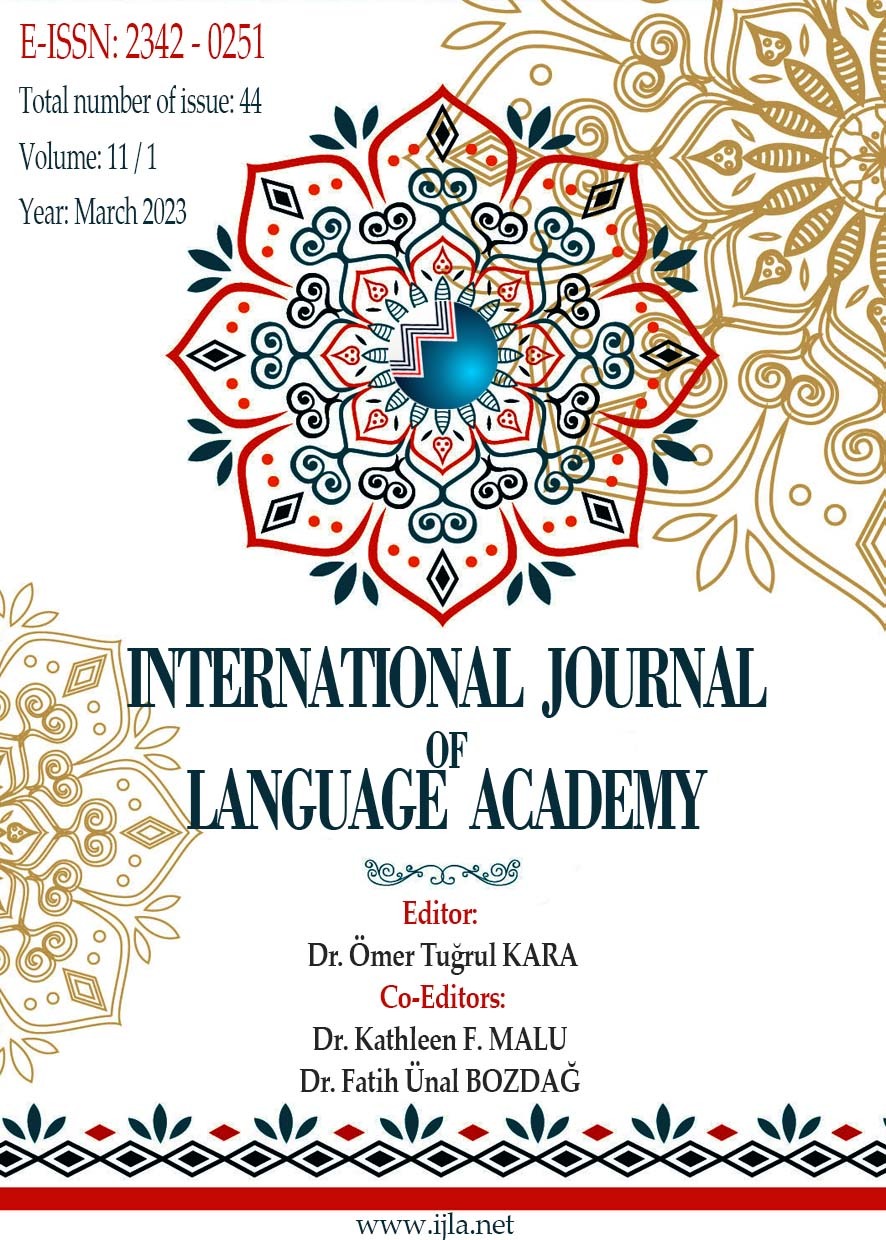Author :
Abstract
Dil eğitiminde dört temel dil becerisi bulunmaktadır. Bu beceriler dinleme, okuma, konuşma ve yazma becerileridir. Bu dört temel dil becerisi birbirleriyle ilişkilidir ve dilin etkili kullanılması sürecinde oldukça önemlidir. Dinleme, seslere anlam yüklenmesi ile başlayan süreçte öğrencinin yaşam boyu diğer becerilerinin kazanılmasında kilit rol oynamaktadır. Okuma becerisi ise bireyin eğitim hayatına başladığı andan itibaren öğrenmeyi de öğrendiği ilk beceri olmasının yanı sıra hedef dilde ya da günlük yaşantıda görsellerin, sözcüklerin algılanması ve kodların çözülmesi olarak tanımlanabilir. Bu bağlamdan yola çıkarak anlama becerilerinde eğitim-öğretim, ölçme-değerlendirme süreci, bireyin gündelik yaşamında, ana dili eğitiminde ve yabancı dil öğreniminde oldukça önemli rol oynadığı söylenebilir. Ölçme ve değerlendirme süreçlerinde kullanılan klasik test odaklı ölçme yöntemlerinin yanı sıra öğrencilerin de eğitim sonunda kendilerini değerlendirmesi gerekmektedir. Bu da öğrencinin bizzat kendini değerlendirdiği öz yeterlik ölçme yöntemi ile olmaktadır. Öz yeterlik; öğrencinin eğitim aldığı sürecin sonunda o konu hakkında sorulan belirli sorular ile kendisinin ne kadar başarılı olduğunu ifade etmektedir. Buradan amaçla, Yunus Emre Enstitüsünde C1 seviyesinde Türkçe eğitimi alan 75 Kazakistanlı öğrencinin anlama becerilerine yönelik öz yeterlikleri tarama yöntemi ile incelenmiştir. Veriler ise Kişisel Bilgi Formu ve Yabancı Dil Olarak Türkçe Öğrenenlerin Anlama Becerilerine Yönelik Öz Yeterlikleri Ölçeği kullanılarak çevrim içi şekilde Testmoz uygulaması üzerinden toplanmıştır. Yapılan çalışma sonucunda çalışmaya katılan öğrencilerin öz yeterlik açısından farkındalıklarının yüksek olduğu tespit edilmiştir.
Keywords
Abstract
There are four basic language skills in language education. These are listening, reading, speaking, and writing skills. These four basic language skills are related to each other and are significant in the process of effective use of language. Listening also plays a crucial role in the acquisition of other lifelong skills of the learner in the process that starts with attributing meaning to sounds. Reading skill, on the other hand, can be defined as the perception of visuals, words, and decoding in the target language or daily life, as well as being the first skill that the individual has learned to learn from the moment learners start their education life. Based on this context, the education-training and assessment process plays a significant role in the daily life of the individual, mother tongue education, and foreign language learning in comprehension skills. In addition to the classical test-oriented measurement methods used in the assessment and evaluation processes, learners need to evaluate themselves at the end of their education. This is conducted with the self-efficacy measurement method, in which the learners evaluate themselves. Self-efficacy refers to a student's evaluation of a learner's success with specific questions asked about that subject at the end of the education process. From this point of view, the self-efficacy of 75 Kazakhstani students who received Turkish education at the C1 level at the Yunus Emre Institute was examined using the screening method. The data were collected online through the Testmoz application using the Personal Information Form and the Self-Efficacy Scale for Turkish Learners' Understanding Skills as a Foreign Language. As a result of the study, it was determined that the students participating in the study had high awareness in terms of self-efficacy.





